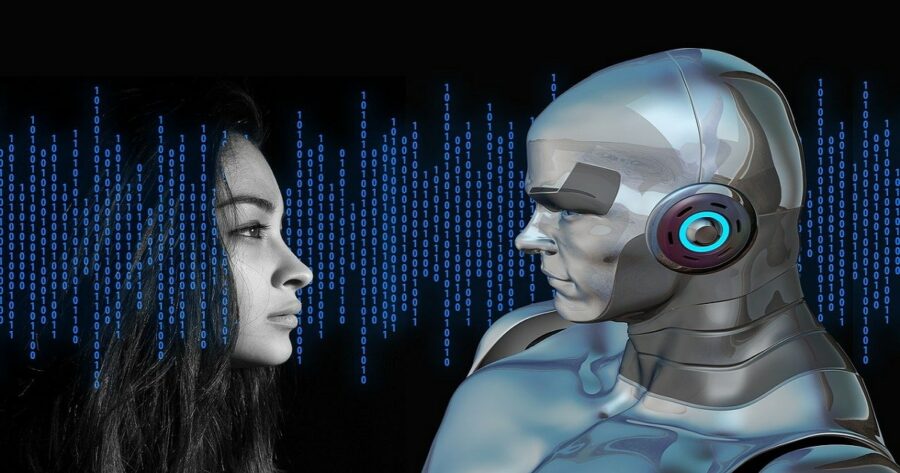The future of Artificial Intelligence (AI) is a topic that has been extensively discussed in recent years. While some view AI as a threat to humanity, there is a growing consensus that society should embrace AI and its potential benefits.
AI refers to the development of computer systems that can perform tasks that would normally require human intelligence, such as speech recognition, decision-making, visual perception and the latest craze, ChatGPT. AI is a rapidly growing field, with new advances being made on a regular basis. As a result, AI is becoming increasingly integrated into our daily habits.
One of the most significant benefits of AI is its potential to improve our lives in a multitude of ways. For example, AI can be used to make healthcare more efficient and effective. Medical professionals can use AI to analyze large amounts of data from patient records to help diagnose and treat diseases. AI can also be used to develop new drugs and treatments, making healthcare more personalized and effective.
Another potential benefit of AI is its ability to increase productivity and efficiency in the workplace. Workers can focus on more complex and creative work by automating repetitive and time-consuming tasks. This can lead to increased job satisfaction and higher-quality work.
AI can also be used to improve education. With the help of AI, teachers can create personalized learning experiences for students, tailoring the curriculum to each student’s individual needs and abilities. This can lead to more effective learning and better educational outcomes.
Despite these potential benefits, some people fear that AI will lead to widespread job loss and have a negative impact on society. However, this fear is largely unfounded. While it is true that AI may replace some jobs, new jobs will also be created as a result of AI. For example, as AI becomes more integrated into healthcare, new jobs will be created to design, develop, and maintain these systems. In addition, AI can help create new industries and markets, leading to more job opportunities.
Another concern is that AI could be used to create autonomous weapons and other technologies that could be used for malicious purposes. However, this is a concern that can be addressed through regulation and ethical guidelines. It is also a truncated point of view, seeing that there are over 1 billion guns in the world and billions more deadly weapons that have not been used in the most ethical ways. By working together, governments, researchers, and industry leaders can ensure that AI is developed in a responsible and ethical manner.
Moreover, AI can be a powerful tool for promoting social justice and equality. For example, AI can be used to identify and reduce bias in hiring and promotion decisions, leading to a more diverse and inclusive workforce. AI can also be used to detect and address inequalities in healthcare access and treatment.
In addition, AI can help us address some of the biggest challenges facing society today, such as climate change, poverty, and disease. For example, AI can be used to develop new and innovative solutions for sustainable energy production and consumption. AI can also be used to predict and prevent the spread of diseases, leading to better health outcomes for individuals and communities.
The future of AI is bright, and society should embrace it rather than fear it. AI has the potential to improve our lives in countless ways across all spectrums, industries and the workforce. While there are some valid concerns about the impact of AI on society, it is important we take a systematic and analytical approach rather than an alarmist one. By working together, we can ensure that AI is developed in a responsible and ethical manner and that its potential benefits are realized for all.









